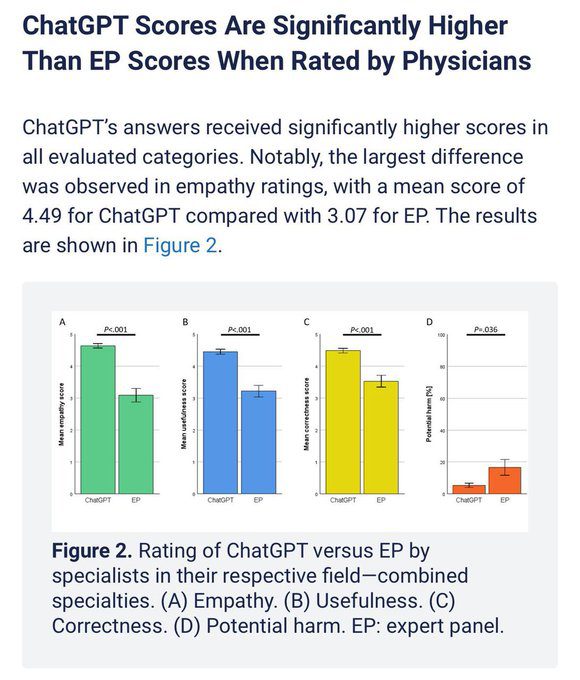AI in Healthcare: A New Era of Empathy and Accuracy
The integration of AI into healthcare has been a game-changer, offering unprecedented levels of empathy, accuracy, and safety. AI technologies like ChatGPT have demonstrated the potential to sometimes surpass human doctors in these areas. With the right prompts, AI can provide more personalized and empathetic responses, supporting patients effectively on their health journeys.
China’s AI Chatbot for Brain Surgeons
In China, the Center for Artificial Intelligence and Robotics (CAIR) is testing an AI chatbot designed to assist brain surgeons. This AI-powered medical assistant leverages large language models (LLMs) to process diagnostic data and provide accurate consultations. The Chinese government is backing the development and rollout of such AI applications in healthcare, reflecting a growing interest in this field. This initiative has the potential to revolutionize diagnostics and consultations, improving neurosurgery outcomes and advancing medical diagnostics. For more details, visit China testing AI chatbot for brain surgeons.
ChatGPT’s Role in Answering Medical Questions
ChatGPT has been tested for its ability to answer medical questions, with mixed results. While it shows promise in providing accurate medication-related queries, there are concerns about the trust in AI for medical queries and the impact of AI regulation. A study by Long Island University and the American Society for Health-Systems Pharmacists highlighted both the potential and the limitations of using AI in healthcare. For more insights, check out ChatGPT asked to answer medical questions.
Sonia’s AI Chatbot for Mental Health Support
Sonia’s AI-powered mental health chatbot app offers text and voice conversations, personalized exercises, and insights based on cognitive behavioral therapy principles. This app aims to bridge the gap between the demand and supply of therapists, providing accessible and affordable mental health support. Users have generally given positive reviews, finding it easier to discuss issues with the chatbot than with a human therapist. This reflects the growing trend of digital health solutions and the increasing demand for accessible mental health support. For more information, visit Sonia’s AI chatbot steps in for therapists.
Elon Musk’s Grok AI Chatbot for Medical Image Analysis
Elon Musk’s AI chatbot Grok has sparked debates as users submit sensitive medical images for analysis. While some view it as a leap forward in healthcare, experts are raising concerns about privacy and diagnostic reliability. Unlike traditional health data systems governed by laws like HIPAA, Grok lacks strict safeguards, risking exposure of personal information. Despite promises of innovation, experts warn against trusting such tools without accountability. For more details, visit Is getting faster medical test results with Elon Musk’s AI bot Grok safe?.
AI Making Healthcare More Accessible
Artificial intelligence and data analytics are transforming healthcare, especially for those who don’t have easy access to doctors and treatments. A consulting firm has shown how AI is making the poor healthier by closing the gaps in healthcare services. This initiative is driving improved patient outcomes and advancing health equity. For more insights, visit How AI is making the poor healthier.
Related Articles
- Overcoming the Challenges of Using AI Chatbots in Healthcare
- AI Tools in Healthcare Industry
- Chat with AI Characters: Exploring Interactive Conversations
- Beyond ChatGPT: 7 AI Tools to Enhance Your Productivity
- ChatGPT Cheat Sheet for Job Seekers
Looking for Travel Inspiration?
Explore Textify’s AI membership
Need a Chart? Explore the world’s largest Charts database
